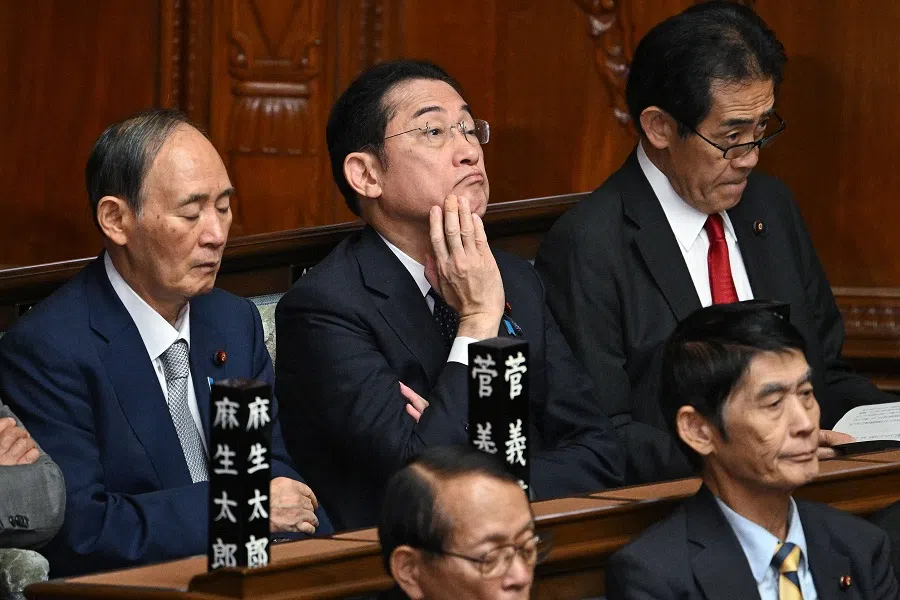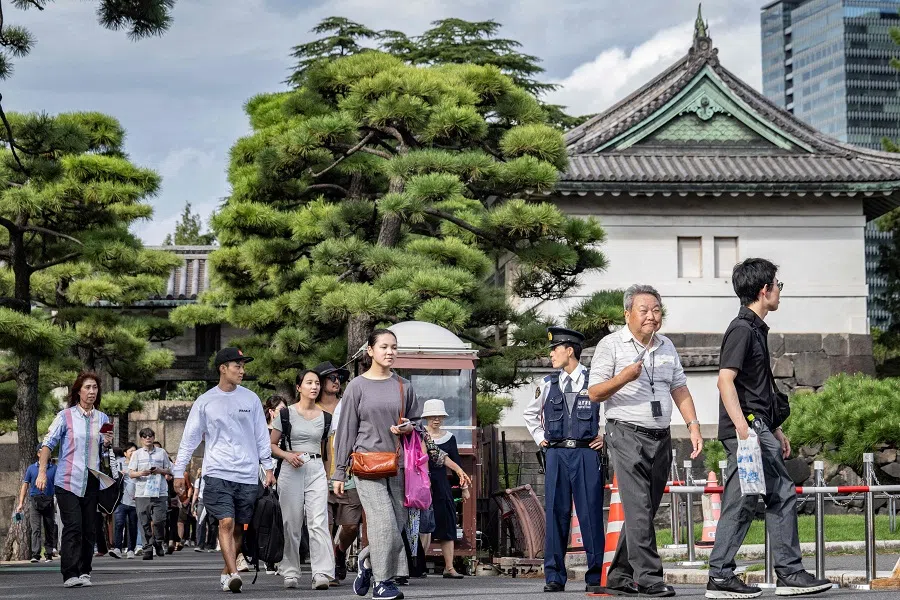Will Japanese perceptions of China worsen under Prime Minister Ishiba?
China and Japan have the potential for deeper cooperation to tackle problems in society they both face, especially in the areas of modernisation, urbanisation and an ageing society, says academic Zhang Yun.

With newly elected Japanese Prime Minister Shigeru Ishiba proposing an “Asian version of NATO” to bolster deterrence against China, analysts anticipate significant challenges in China-Japan relations during his term. His prior visit to Taiwan and extensive background in security and defence further underscore these concerns.
However, I believe the greatest challenge for China-Japan relations may not stem from political ties, but rather from addressing the negative perceptions held by both societies.
Mutual acknowledgement of strategic positions
Firstly, as a conservative politician, Ishiba is likely to adopt a tough stance on certain issues concerning China. However, he is also a realist. An important reason for Sanae Takaichi’s election defeat is exactly because of her overly strong conservative ideological stance, which raised concerns both within the Liberal Democratic Party (LDP) and among the public.
For the LDP, the newly appointed secretary-general Hiroshi Moriyama has visited China twice and is also an honorary citizen of Changsha. During his visit to China, Moriyama talked about the issue of the discharge of treated water from the Fukushima nuclear power plant; and both sides have recently reached a consensus on the matter and made progress. With the ageing of Toshihiro Nikai, the long-time high-level communication bridge between the LDP and China, Moriyama is likely to become the new key figure in the party’s relations with China.
China’s strategic approach to China-Japan relations emphasises adapting to the demands of the new era, while Japan prioritises a stable and constructive relationship with China.

At the same time, former Japanese Prime Minister Fumio Kishida met with the Chinese leader twice over the past two years, and both sides reached a consensus on building a constructive and stable China-Japan relationship fit for the new era, as well as comprehensively advancing the strategic and mutually beneficial relations between both countries.
China’s strategic approach to China-Japan relations emphasises adapting to the demands of the new era, while Japan prioritises a stable and constructive relationship with China. These statements reflect both sides’ recognition of each other’s strategic positions regarding their bilateral ties, as reiterated in the congratulatory message from the Chinese leader to Ishiba upon his election as Japan’s 102nd prime minister.
The mutual acknowledgement of their strategic positions signals a growing alignment in the strategic understanding between Japan and China, which is essential for managing disputes and fostering cooperation in areas where collaboration is feasible.
The Asia-Pacific Economic Cooperation (APEC) and G20 summits will be held in November, and if a summit between the leaders of China and Japan takes place then, it will help further consolidate this momentum.
... while it is unlikely that Ishiba’s “Asian version of NATO” will be realised, he will seek a “middle ground” between the current security policy and this proposal.
Poor social perception, but room for cooperation
In terms of security policy, while it is unlikely that Ishiba’s “Asian version of NATO” will be realised, he will seek a “middle ground” between the current security policy and this proposal.
His strategic direction focuses on establishing a new security framework in East Asia, particularly at sea, centred around a “US-Japan hub-and-spoke” model, which could pose significant challenges for China-Japan relations. However, the realisation of this model depends on Japan’s domestic political and social conditions, as well as various external constraints from China, the US, ASEAN and others.

Currently, the biggest challenge facing China-Japan relations is the negative social perception. From 2010 to 2012, China-Japan relations were hit by the boat collision incident and the island purchase dispute, causing diplomatic relations to plummet. Since then, both sides have been seeking ways to stabilise bilateral relations at the official level.
From 2018 to 2019, China-Japan relations experienced a brief respite and a state visit by the Chinese leader to Japan was discussed at one point. Although China-Japan relations subsequently deteriorated, the overall tone of the leaders’ meetings remained positive.
In contrast, mutual goodwill between Chinese and Japanese societies has long been low, with as much as 90% of the Japanese public harbouring negative feelings towards China. If societal perceptions remain negative in the long run, the improvement and development of political relations will be significantly constrained. Policy decisions cannot be made in isolation from public opinion.
A negative public sentiment reflects fragile social ties, and tensions between China and Japan may worsen these perceptions, turning them into adversarial sentiments.
Both countries can explore the significant potential to learn from each other’s experiences, particularly in addressing societal issues.
Addressing negative social perceptions in China-Japan relations will require creativity and innovation. For instance, China is pursuing a path of modernisation with Chinese characteristics, aiming not only for greater wealth but also for comprehensive advancements in social welfare, elderly care, healthcare, and environmental issues. Meanwhile, Japan has gained valuable insights from its own modernisation process. Both countries can explore the significant potential to learn from each other’s experiences, particularly in addressing societal issues.

Japan has dealt with a rapidly ageing society for many years and has made significant advancements in the scale and quality of elderly care services, while China is moving towards an aged society. There is much room for cooperation between the two countries in this area.
Create tangible benefits from interactions
In terms of regional revitalisation, Japan is grappling with the worsening issue of urban concentration in Tokyo, which has led to the decline of other areas during its modernisation process. In contrast, China’s “pairing assistance” initiative — an inter-provincial support network that channels financial, technical and human resources from various sectors to regions in need — has proven effective in addressing these challenges.
Shigeru Ishiba was a parliamentarian from the relatively small Tottori prefecture in Japan, and later became state minister for regional revitalisation. He had campaigned on regional revitalisation as a key policy goal. Similarly, the issue of how to tackle income inequality in the process of modernisation is something that Japan and China can explore together.
Direct social exchanges between the two countries will lead to diversified and intuitive social perceptions, and will also act as an effective deterrence against polarised perceptions formed online.
In order to improve China and Japan’s social perceptions of each other, it is essential that the general public see the tangible benefits from an improved China-Japan relationship, and in turn create a strong grassroots foundation to support bilateral relations.
In the past, people-to-people exchanges primarily involved Japanese people travelling to China, but a sizeable middle class in China has emerged amid its rapid development — and they are fully capable of travelling to Japan for tourism, education and work. China’s modernisation also offers various employment and entrepreneurial opportunities for Japan’s society.
Direct social exchanges between the two countries will lead to diversified and intuitive social perceptions, and will also act as an effective deterrence against polarised perceptions formed online.
Improved perception a possibility
There is a history of positive people-to-people exchange between China and Japan; against the harsh backdrop of the Cold War Iron Curtain, where China and Japan were politically opposed, social exchanges between the two sides laid the foundation for a breakthrough in political relations.

It has been more than 50 years since the normalisation of diplomatic relations between China and Japan, and even as bilateral relations have met with challenges, the situation is leagues better than what it was five decades ago. Indeed, there is no reason to be pessimistic about China-Japan relations.
People from both sides aspire to a better life, sharing a common desire for peace and prosperity. Japan’s economy has been in the doldrums for a prolonged period since the collapse of its bubble economy, and is facing an ageing population, delayed marriages and low fertility rates among other challenges. However, Japanese society has also shifted its focus from the previous emphasis on rapid growth to a greater pursuit of stability and comfort.
At the same time, after decades of rapid growth, China has begun to move towards moderate development, with a burgeoning desire from its people towards a more comfortable, healthier and more secure lifestyle.
The commonalities between Chinese and Japanese societies imply that improving social perceptions is possible. China-Japan relations are not abstract political relations, nor are they exclusively limited to economic relationships between businesses. Instead, they should build a social relationship network that encompasses the various levels of both societies, allowing the public to reap tangible benefits.
This article was first published in Lianhe Zaobao as “石破内阁与中日“社会认知赤字”的挑战”.





